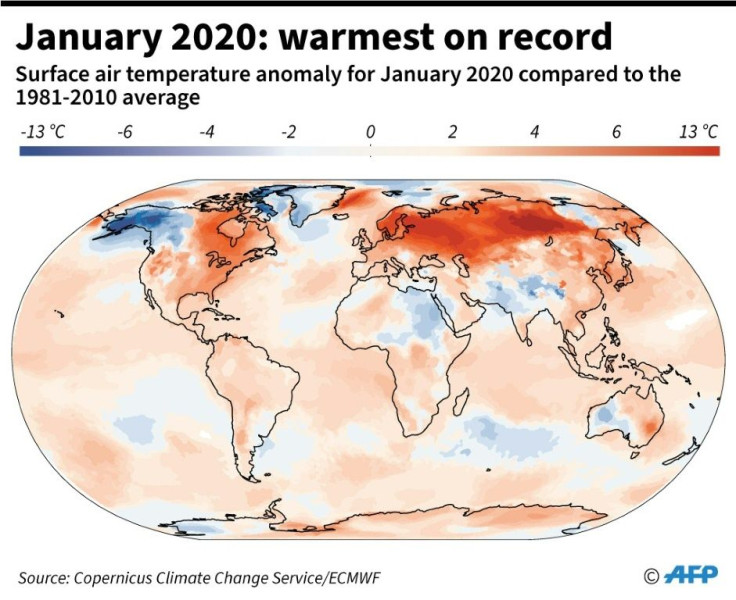Extreme Weather 2020: Earth Just Had One Of Its Warmest Winters Ever

The National Oceanic and Atmospheric Administration (NOAA) has become the latest group to lend support to a troubling new statistic. According to NOAA’s research, this most recent winter, spanning from November to February, was the second hottest on record. The group’s climate analysis records date back to 1880.
At 2.02 degrees Fahrenheit higher than the 20th-century average, the average global temperature for the 2019-20 winter season topped the charts, with only the 2015-16 season coming in hotter.
Across Europe and western Russia, the statistic was considerably higher at 2.5 degrees Fahrenheit hotter than in 2015-16. This made the most recent winter the warmest in Russia since 1891 and in Europe since at least 1850. France also had its warmest winter on record.
“Record-warm December to February temperatures were observed across much of the western half of Russia and parts of Europe, eastern Asia, northern Australia and across the Atlantic, Indian and western Pacific oceans,” NOAA said in a statement. “However, no land or ocean areas had record-cold December to February temperatures.”
The Weather Channel notes in its report that these findings are especially concerning given that there was no El Nino weather event, which can increase global temperatures. The significant heat in 2015 and 2016 was bolstered by a considerably strong El Nino event.
Experts agree that the long-term effects of global climate change are to blame for this sweltering winter. In NOAA’s record, the five warmest winters in recent history have all been from the last six years.
“Given that greenhouse gas levels continue to increase, the warming will continue,” United Nations Secretary-General and WMO Secretary-General Petteri Taalas said in a statement on Tuesday.
© Copyright IBTimes 2025. All rights reserved.





















